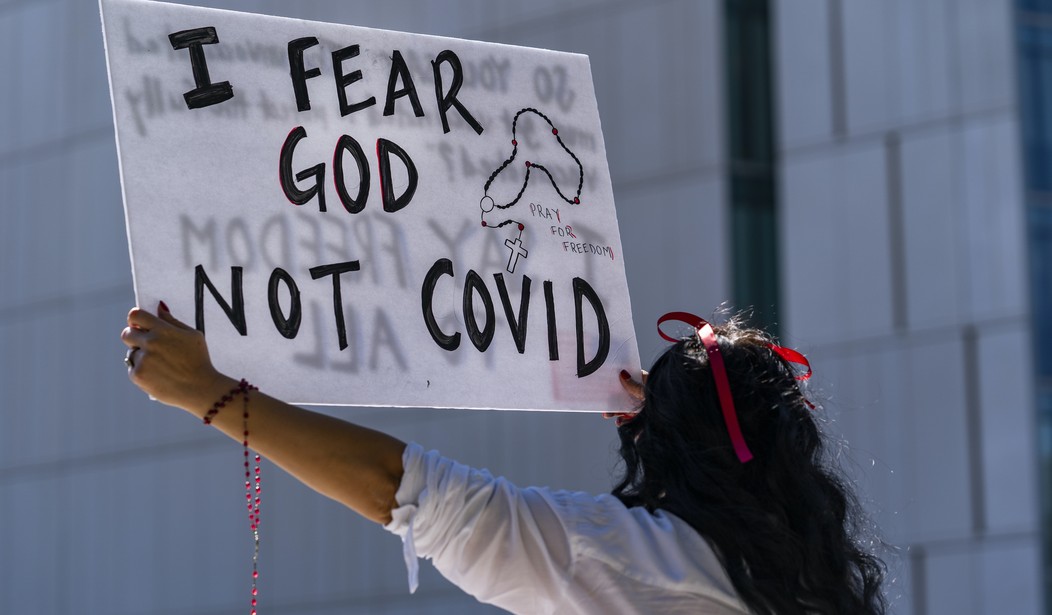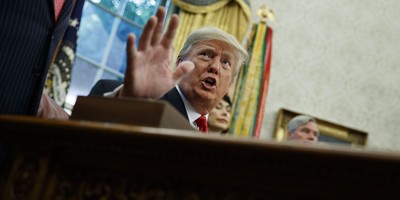On Friday, the U.S. Supreme Court declined to block a vaccine mandate for healthcare workers in Maine, which thus went into effect that day. The particularly strict mandate has a medical exemption but not a religious one. While the majority on the Court did not give an opinion, Justice Neil Gorsuch wrote a dissent that was joined by Justices Clarence Thomas and Samuel Alito, as highlighted by Robert Barnes with The Washington Post.
As Justice Gorsuch wrote in that dissent:
Maine has adopted a new regulation requiring certain healthcare workers to receive COVID–19 vaccines if they wish to keep their jobs. Unlike comparable rules in most other States, Maine’s rule contains no exemption for those whose sincerely held religious beliefs preclude them from accepting the vaccination. The applicants before us are a physician who operates a medical practice and eight other healthcare workers. No one questions that these individu- als have served patients on the front line of the COVID–19 pandemic with bravery and grace for 18 months now.
Yet, with Maine’s new rule coming into effect, one of the applicants has already lost her job for refusing to betray her faith; another risks the imminent loss of his medical prac- tice. The applicants ask us to enjoin further enforcement of Maine’s new rule as to them, at least until we can decide whether to accept their petition for certiorari. I would grant that relief.
The nine healthcare workers using pseudonyms, referred to Maine's lack of religious exemption as an "extreme outlier," pointing out in their request to the Court that only Rhode Island and New York also don't have religious exemptions, though New York's has been blocked for now.
Recommended
As the request noted:
Maine’s categorical ban on any accommodations for religious healthcare workers is an extreme outlier nationwide. Forty-seven other states have rejected this approach for private healthcare facilities, and just two days ago, the EEOC issued detailed guidance confirming that it directly violates federal law...
...Worse, the [respondents'] brief openly admits that Maine thinks religious objections are merely something a believer “chooses,” while medical concerns—no matter how minor—render people “unable” to take the vaccine. (Id.) As Maine sees it, religious people really “can” take the vaccine but just “choose[]” not to, while medical objectors, for any reason no matter how small, are “unable” and would be “actually harmed” if required to do so.
...
Again, Maine is doing all of this in a way that makes it an extreme outlier compared to the rest of the country. Almost every other state has found a way to protect against the same virus without trampling religious liberty—including states that have smaller populations and much greater territory than Maine. If Vermont, New Hampshire, Alaska, the Dakotas, Montana, Wyoming, California, and the District of Columbia can all find ways to both protect against COVID-19 and respect individual liberty, Maine can too. And at least on this record, Maine certainly has not shown why it needs a more draconian approach.
Justice Amy Coney Barrett did briefly write an explanation as to why she went along with allowing the mandate to stand. It was joined by Justice Brett Kavanaugh:
But she wrote separately in the Maine case to say she was not sure relief was warranted, and the court should not make such a decision “on a short fuse without benefit of full briefing and oral argument.”
Joined by Justice Brett M. Kavanaugh, she said that was not what the court’s emergency docket should be used for.
“In my view, this discretionary consideration counsels against a grant of extraordinary relief in this case, which is the first to address the questions presented,” she wrote.
As I have covered in the past, Justice Barrett similarly declined to block a vaccine mandate that affected Indiana University students. Justice Sonia Sotomayor similarly declined to block a vaccine mandate affecting New York City teachers.
Barnes also explained that the lower courts upheld the lack of a religious exemption because the point of the vaccine mandate was not aimed at religious exercise.
The state did away with religious exemptions for health-care workers, day-care employees, schoolchildren and college students in 2019. Certain employees have been required to take some vaccines since 1989, Barnes noted.
Healthcare workers were required to get vaccinated by Friday, October 29, or else risk losing their jobs.
Other states are moving in the opposite direction. As Landon reported earlier tonight, Georgia's Republican governor, Brian Kemp, announced he plans to sue the Biden administration over what he calls an "unconstitutional" vaccine mandate.

























Join the conversation as a VIP Member